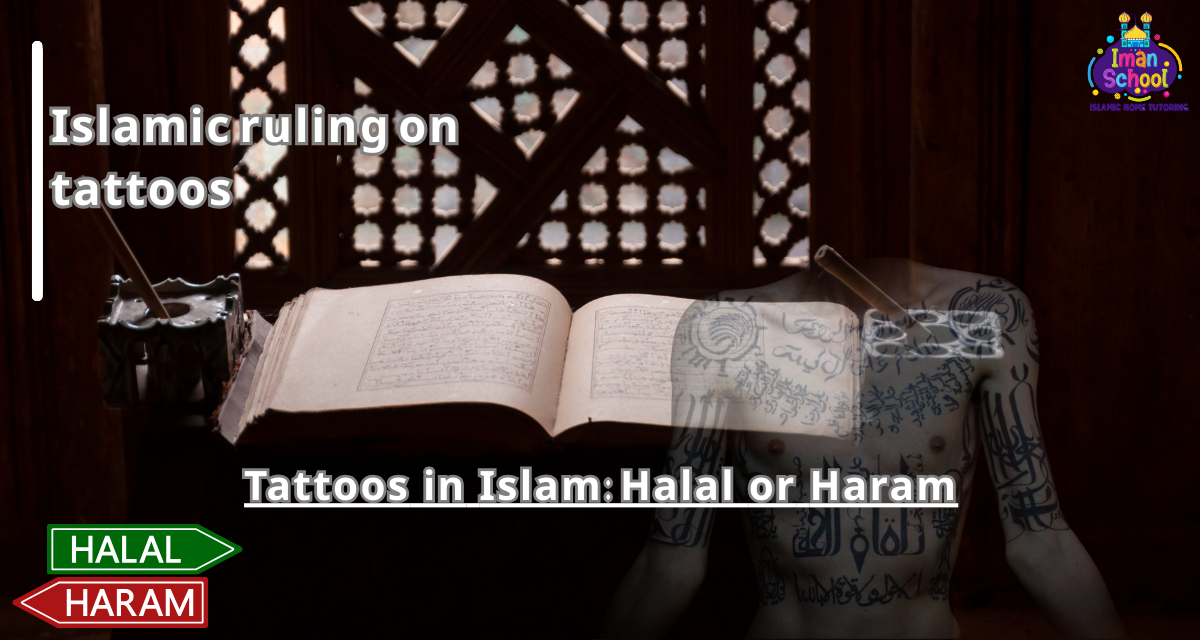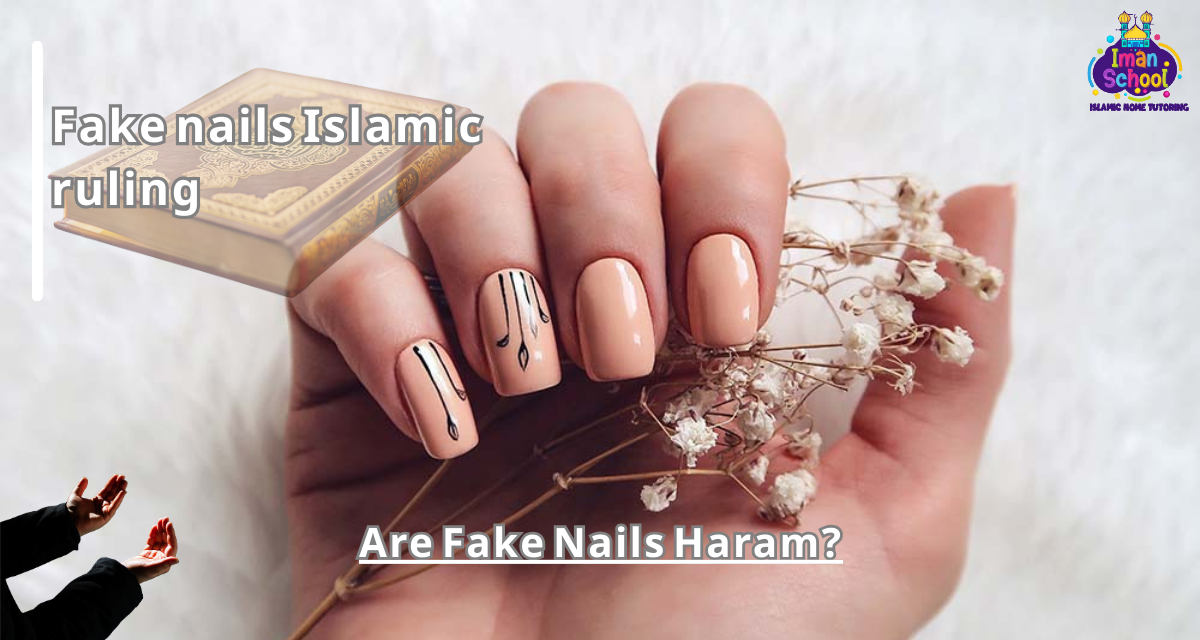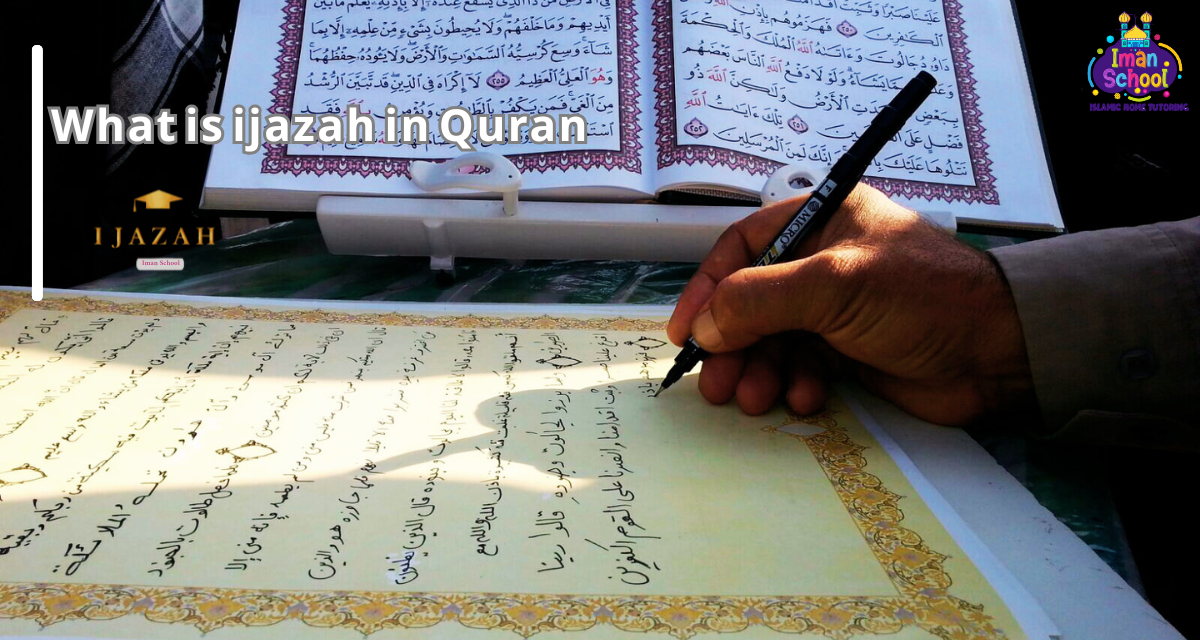In today's modern world, tattoos have become a widespread form of self-expression. For Muslims seeking to reconcile their faith with contemporary culture, a common and important question arises: "What is the Islamic ruling on tattoos?" The answer to this question requires a careful look into Islamic scriptures and scholarly interpretations.
This article will provide a detailed, authoritative guide to the Islamic ruling on tattoos, exploring the scriptural evidence, the theological reasons behind the prohibition, and the practical implications for Muslims who already have them.
The General Ruling on Tattoos in Islam
The clear and overwhelming consensus among Islamic scholars is that permanent tattoos are forbidden (Haram) in Islam. This answers the most direct questions: "Are Tattoos Haram in Islam?" and "Tattooing in Islam: Is It Haram or Halal?" The prohibition is not a minor matter; it is a serious issue that has been discussed and agreed upon by scholars across the centuries. This strict ruling applies to permanent tattoos and is the general understanding of Tattoos in Islamic Law.
See More: Islamic Ruling on Eyebrows
Scriptural Evidence: What the Hadith Say
The primary evidence for the prohibition of tattoos does not come directly from the Quran, which does not explicitly mention the practice. Instead, the ruling is derived from the authentic narrations of the Prophet Muhammad (peace be upon him) found in the Hadith. This clarifies the question, "Is Tattooing Haram in Quran?," by pointing to the Sunnah as the source.
The most foundational Hadith on this topic is narrated in Sahih al-Bukhari and Sahih Muslim:
Abdullah ibn Mas’ud (may Allah be pleased with him) reported: "Allah has cursed the women who get tattoos (al-Wāshimah) and those who have them done (al-Mustawshimah), and the women who pluck their eyebrows (al-Nāmisah) and those who file their teeth for beauty, altering the creation of Allah."
This powerful Hadith, which is the cornerstone of the hadith about tattoos in islam, clearly and explicitly curses the one who gets a tattoo and the one who applies it. The inclusion of this practice alongside other forbidden acts, such as plucking eyebrows and filing teeth, places it firmly in the category of a major sin. The mention of this in the Tattoos in Quran and Hadith context is a reference to the Sunnah as the definitive source.
Find Out More: Does a woman have to wear hijab when reading quran
Why Are Tattoos Forbidden? (Theological Reasons)
The prohibition of tattoos in Islam is not arbitrary; it is based on profound theological reasons. The key reason is mentioned in the very Hadith itself: "altering the creation of Allah."
This core concept is known as Taghyeer Khalq Allah Tattoos. Muslims believe that Allah (SWT) created human beings in the best of forms. Making a permanent, non-essential change to the body for the sake of beautification is seen as an act of disrespect to this divine creation and an imitation of the Shaitan (Satan), who vowed to lead humanity astray by commanding them to change Allah's creation (Quran 4:119).
This is the primary theological reason answering Why Tattoos are Forbidden in Islam. It is not a matter of a minor tattoo in islam punishment, but a serious act of disobedience to the Creator.
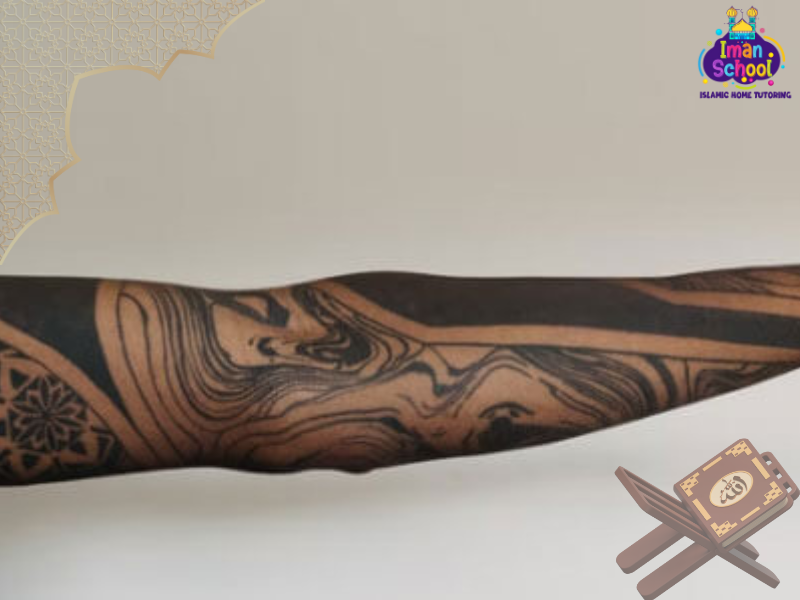
Scholarly Opinions: Consensus and Minority Views
The consensus among traditional scholars from the four main schools of Islamic jurisprudence is that permanent tattoos are Haram. There are no significant differences of opinion on this matter in classical Islamic law. The discussion among Muslim Scholars on Tattoos has always revolved around the explicit prohibition found in the Hadith.
This is why when asking, "Are Muslims Allowed to Get Tattoos?" or "Can a Muslim Have a Tattoo?," the answer from traditional Islamic scholarship is a definitive no. This consistent ruling over centuries is why Tattoos in Islamic Law is considered a settled matter.
It is worth noting the distinction between permanent tattoos and temporary ones. Temporary tattoos, such as henna, which do not involve piercing the skin and are not permanent, are generally considered permissible.
This addresses the question, "is temporary tattoo haram in islam?," with the understanding that the key distinction lies in the permanence of the alteration. Henna vs Tattoos in Islam is not a debate, as their nature and permanence are fundamentally different.
Learn More: Islamic Ethics
The Concept of Altering Creation (Taghyeer Khalq Allah)
To understand why Permanent Tattoos Islam are forbidden, one must grasp the broader concept of altering creation. Islam distinguishes between beautification (Zinah), which is permissible and even encouraged, and altering creation (Taghyir). Permissible adornment includes things like applying makeup, using henna, and wearing jewelry, as these are temporary.
Forbidden alteration includes tattoos, plucking eyebrows for shaping, and filing teeth. The prohibition is not about personal hygiene or medical necessity; rather, it is about making permanent changes to the body without a valid reason, which is seen as questioning Allah's perfect design.
Read More: Why Can't Muslim Woman Pray on Their Period?
Tattoos and Prayer: Does It Invalidate Wudu?
A very common concern for a person with a tattoo is its effect on their daily worship. The question "can you pray with a tattoo in islam?" is a practical one that requires a clear answer.
The act of having a tattoo does not invalidate a Muslim's Wudu (ablution) or their prayer. The tattoo ink is situated under the skin, not on top of it, so it does not form a physical barrier that would prevent water from reaching the skin during Wudu or Ghusl.
Therefore, the Wudu of a person with a tattoo is considered valid, and their prayers are valid. The ruling here is about the sin of getting the tattoo, not about the validity of one's worship after the fact. This provides clarity for those asking about Tattoos and Wudu and Tattoos and Prayer Islam.
The sin for getting the tattoo remains, but the prayer itself is not affected. This is the answer to "What if I Have a Tattoo and I Pray?" A person with a tattoo is still obligated to pray, and their prayers are accepted by Allah (SWT).
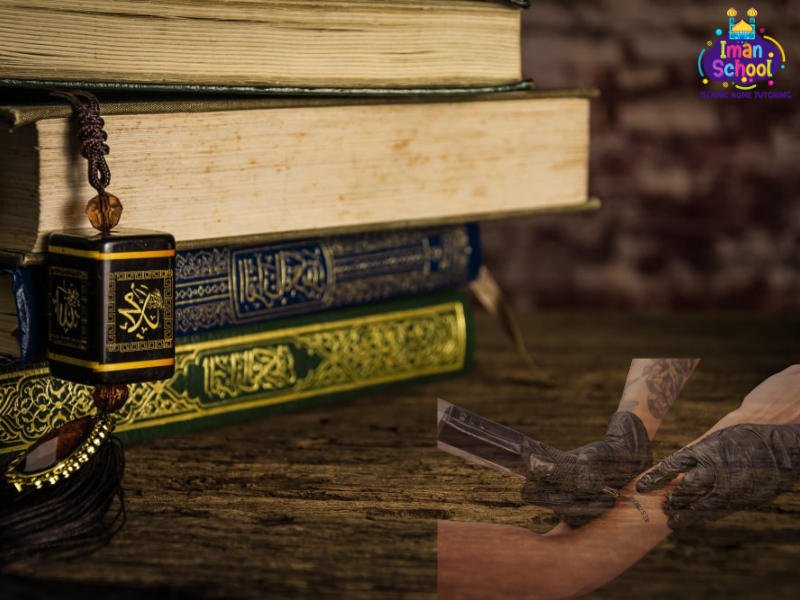
What If a Muslim Already Has a Tattoo?
For those who already have a tattoo, either before converting to Islam or before knowing the Islamic ruling, the situation is different.
Tattoos Before Converting to Islam
For a convert, all sins of the past are forgiven upon accepting Islam. The person does not need to remove their tattoos. This is the answer to Tattoos Before Converting to Islam.
Tattoos After Knowing the Ruling
For a Muslim who got a tattoo out of ignorance or weakness, repentance (Tawbah) is the key. Allah (SWT) is most forgiving and merciful, and sincere repentance is sufficient. There is no a specific tattoo in islam punishment beyond the sin itself.
Removing Tattoos
The question of Removing Tattoos in Islam is a nuanced one. If removing the tattoo is easy and does not cause significant harm, pain, or financial hardship, some scholars encourage it. However, if removal is difficult, painful, expensive, or causes scarring, it is not obligatory. Repentance is the primary and sufficient act. This is the understanding behind Tattoo Removal and Repentance Islam.
This compassionate approach shows that Islam is a religion of ease and forgiveness. The primary focus is on sincere repentance and striving to be a better Muslim.
Discover More: Human Rights in Islam
A Platform for Authentic Islamic Rulings
Navigating complex Fiqh matters like the Islamic ruling on tattoos requires a deep understanding of Islamic sources. While articles like this provide a general overview, there is no substitute for learning from a qualified scholar.
Iman School provides an excellent solution for those seeking authentic knowledge. Our online courses in Fiqh (Islamic jurisprudence) and other Shari'ah sciences are taught by certified scholars who can provide in-depth, authentic rulings based on the Quran and Sunnah.
Instead of relying on fragmented information, you can learn directly from a qualified teacher who can address your specific questions and help you navigate such matters with confidence.
Take the first step toward a deeper understanding of your deen by enrolling in an online Fiqh course at Iman School today.
See More: Qualified Online Quran Female Tutors
In conclusion, the Islamic ruling on tattoos is clear: the practice is Haram based on the explicit prohibition in the authentic Hadith. This is the consensus among all major schools of Islamic thought. The prohibition stems from the concept of Taghyeer Khalq Allah (altering Allah's creation). However, for a person who already has a tattoo, it does not invalidate their prayer or Wudu, and sincere repentance is the recommended path.
This compassionate approach highlights the beauty of Islam as a religion of mercy and forgiveness. For those who seek to learn more about Tattoos in Islam or any other Fiqh matter, seeking knowledge from qualified scholars is the most reliable and beneficial path.

